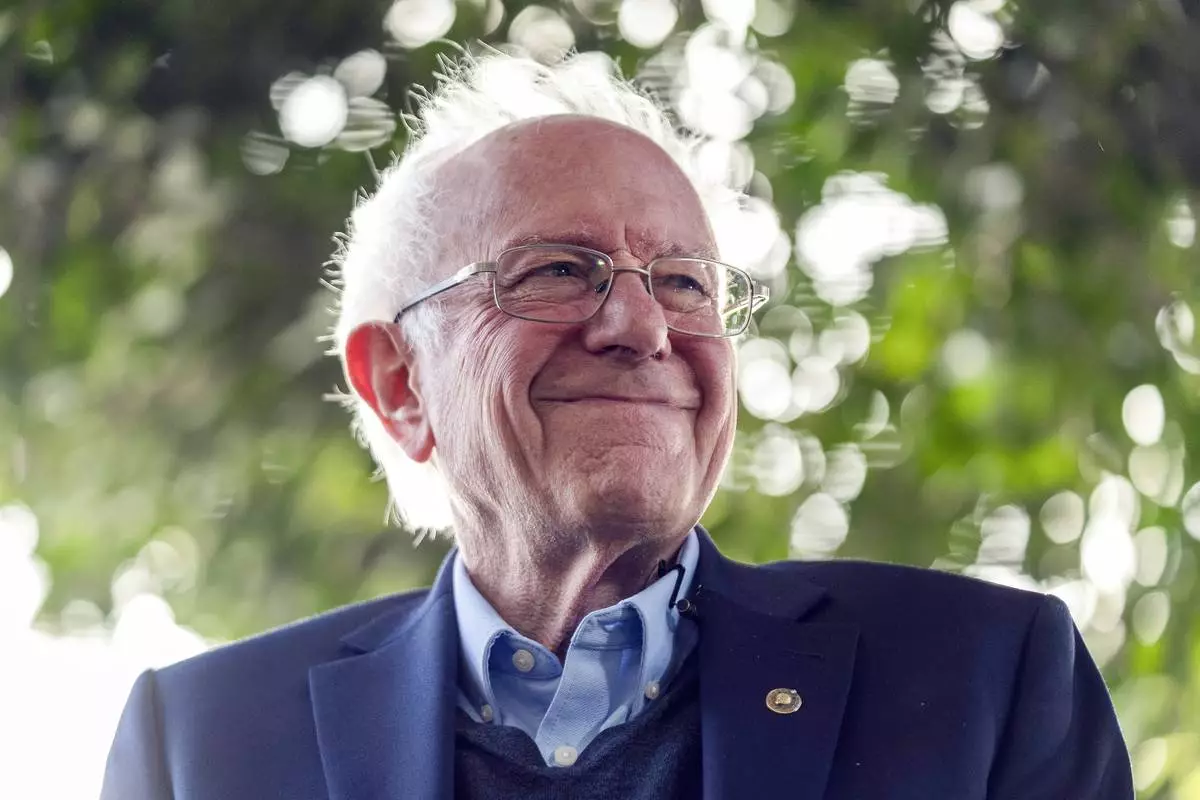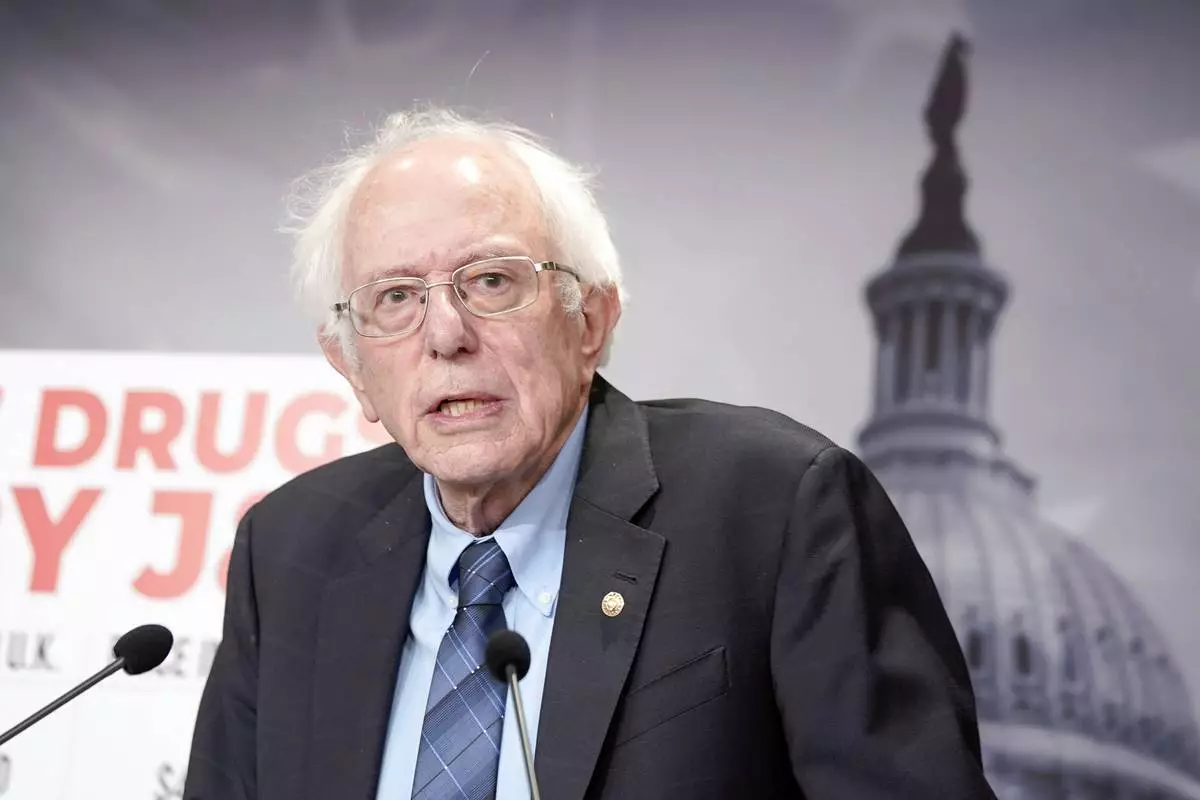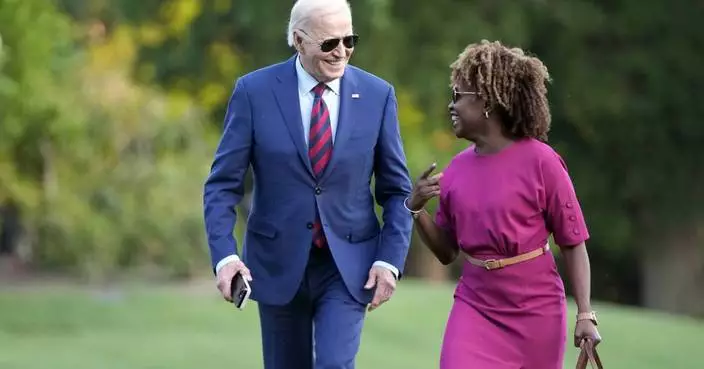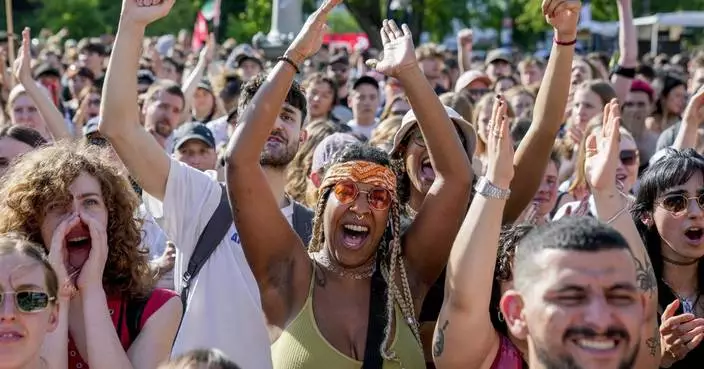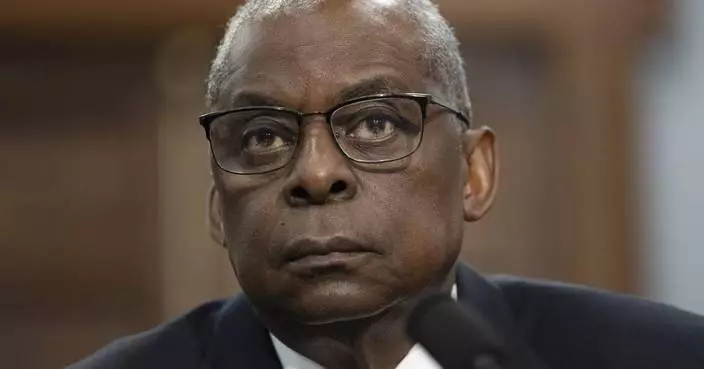Vermont Sen. Bernie Sanders, whose insurgent 2016 presidential campaign reshaped Democratic politics, announced Tuesday that he is running for president in 2020.
"Our campaign is not only about defeating Donald Trump," the 77-year-old self-described democratic socialist said in an email to supporters. "Our campaign is about transforming our country and creating a government based on the principles of economic, social, racial and environmental justice."
An enthusiastic progressive who embraces proposals ranging from Medicare for All to free college tuition, Sanders stunned the Democratic establishment in 2016 with his spirited challenge to Hillary Clinton. While she ultimately became the party's nominee, his campaign helped lay the groundwork for the leftward lurch that has dominated Democratic politics in the Trump era.
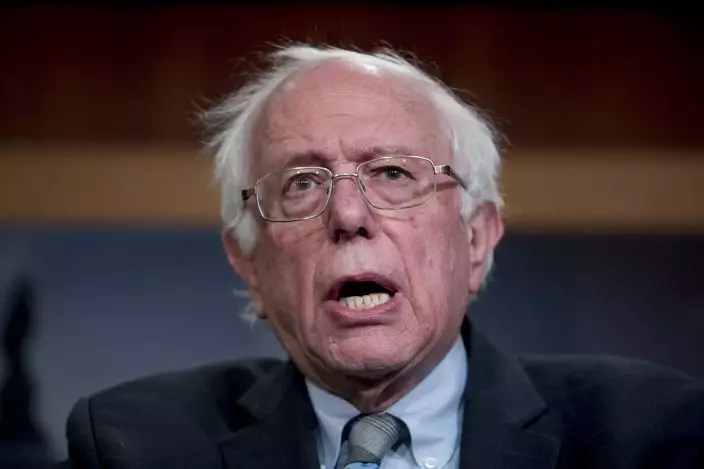
FILE - In this Jan. 30, 2019, file photo, Sen. Bernie Sanders, I-Vt., speaks at a news conference on Capitol Hill in Washington. Sanders, whose insurgent 2016 presidential campaign reshaped Democratic politics, announced Tuesday, Feb. 19, 2019 that he is running for president in 2020. (AP PhotoAndrew Harnik, File)
The question now for Sanders is whether he can stand out in a crowded field of Democratic presidential candidates who also embrace many of his policy ideas and are newer to the national political stage. That's far different from 2016, when he was Clinton's lone progressive adversary.
Still, there is no question that Sanders will be a formidable contender for the Democratic nomination. He won more than 13 million votes in 2016 and dozens of primaries and caucuses. He opens his campaign with a nationwide organization and a proven small-dollar fundraising effort.
"We're gonna win," Sanders told CBS in interview to be broadcast Tuesday morning.
And Sanders could be well positioned to compete in the nation's first primary in neighboring New Hampshire, which he won by 22 points in 2016. But he won't have the state to himself.
Sen. Kamala Harris of California, another Democratic presidential contender, was in New Hampshire on Monday and said she'd compete for the state. She also appeared to take a dig at Sanders.
"The people of New Hampshire will tell me what's required to compete in New Hampshire," she told shoppers at a bookstore in Concord. "But I will tell you I'm not a democratic socialist."
Sen. Elizabeth Warren of nearby Massachusetts will be in New Hampshire on Friday.
One of the biggest questions surrounding Sanders' candidacy is how he'll compete against someone like Warren, who shares many of his policy goals. Warren has already launched her campaign and has planned an aggressive swing through the early primary states.
Shortly after announcing her exploratory committee, Warren hired Brendan Summers, who managed Sanders' 2016 Iowa campaign. Other staffers from Sanders' first bid also have said they would consider working for other candidates in 2020.
The crowded field includes a number of other candidates who will likely make strong appeals to the Democratic base including Harris and Sens. Cory Booker of New Jersey, Amy Klobuchar of Minnesota and Kirsten Gillibrand of New York. The field could also grow, with a number of high-profile Democrats still considering presidential bids, including former Vice President Joe Biden and former Texas Rep. Beto O'Rourke.
While Sanders had been working to lay the groundwork for a second campaign for months, it was unclear whether he will be able to expand his appeal beyond his largely white base of supporters. In 2016, Sanders notably struggled to garner support from black voters, an issue that could become particularly pervasive during a primary race that could include several non-white candidates.
Last month, he joined Booker at an event in Columbia, South Carolina, marking the Martin Luther King Jr. holiday. In 2016, Sanders lost the South Carolina primary, which features a heavily black electorate, by 47 points.
Sanders also faces different pressures in the #MeToo era. Some of his male staffers and supporters in 2016 were described as "Bernie bros" for their treatment of women.
In the run-up to Sanders' 2020 announcement, persistent allegations emerged of sexual harassment of women by male staffers during his 2016 campaign. Politico and The New York Times reported several allegations of unwanted sexual advances and pay inequity.
In an interview with CNN after the initial allegations surfaced, Sanders apologized but also noted he was "a little busy running around the country trying to make the case."
As additional allegations emerged, he offered a more unequivocal apology.
"What they experienced was absolutely unacceptable and certainly not what a progressive campaign — or any campaign — should be about," Sanders said Jan. 10 on Capitol Hill. "Every woman in this country who goes to work today or tomorrow has the right to make sure that she is working in an environment which is free of harassment, which is safe and is comfortable, and I will do my best to make that happen."



